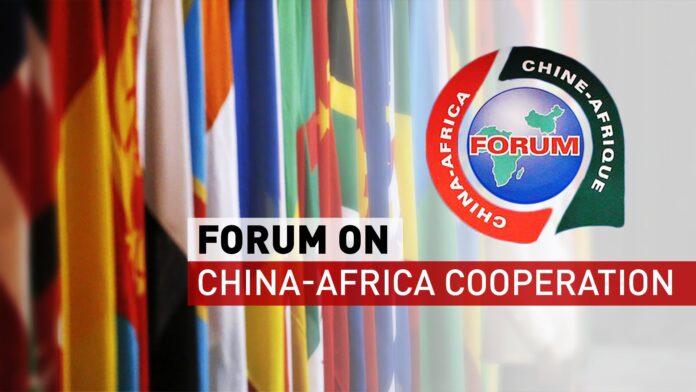The Forum on China-Africa Cooperation (FOCAC) Summit is set to take place in the last quarter of this year in Beijing, China. This will be the ninth edition since the cooperation framework between China and Africa was unveiled in 2000.
FOCAC has become the main institutional mechanism for influencing support to African countries. Indeed, the forum has been promoting political dialogue and economic cooperation between the two sides, with the long-term aim of common economic development and prosperity.
Most significantly, this vision outlines the long-term goals for China-Africa cooperation, emphasizing the need for sustainable development, infrastructure development, and human capital development.
The impact of the programme has been significant in that FOCAC helped define priority cooperation areas between Beijing and African capitals every three years.
During these intervals, the two sides would meet and review the implementation of agreed programmes, particularly, determining what was achieved and what was not, paving the way for adjustments.
Gradually, FOCAC became a mechanism to promote diplomatic, trade, security, and investment relations between China and African countries. Significant benefits to Africa have been achieved, particularly in terms of infrastructure development, trade and investment, and now, sustainable development.
Over the years, Beijing has emphasized the need to give more focus to social development issues, an area Africa needed so much support. On her part, China offered to train and provide technical assistance to African people in various sectors to realize this vision.
So, while numerous economic programmes have been ongoing under FOCAC, the last few years have seen a shift in the model of cooperation where human capital development is receiving greater emphasis.
Chinese government policy, in this regard, also included provisions for employment alongside training of local workers as well as encouraging its overseas firms to invest in broader knowledge transfer that benefit the host country. This has in many ways ensured that Chinese investments deliver economic and social returns for both China and Africa through complementary investments in the skills of the local labor force.
In Kenya, for instance, some of the Chinese companies that pass vital skills to locals include Afristar Railway Operation Company, China Road & Bridge Corporation, Moja Express Way (Kenya), China Energy International Group Company Limited, China Aerospace Construction Group Co., Ltd, AVIC-International (Kenya) and Stecol corporation – Power China among others. 90 percent of employees in these companies are local.
Given the scale of China’s investments in African economies, both the direct investment by Chinese firms in skills development as well as Chinese government support for skills development are hugely significant.
The Chinese firms, just like many foreign firms operating in sub-Saharan African countries, initially encountered serious skills constraints, like at the level of technicians and higher-level skills of professionals such as engineers and architects, especially in large-scale infrastructure projects. To deliver these projects on time, Chinese firms previously resorted to importing skilled labour.
However, this programme was not sustainable, so to stop this over-reliance on Chinese skilled workers, Chinese investments in Africa undertook to provide training to citizens of host countries. This is one of the most common and immediate ways to achieve knowledge transfer. Here, firms provide training to their local workers, either through formal programmes or on-the-job training and mentoring. When need be, Chinese firms have sometimes also taken African workers to China for training to realize this objective.
This shift has had positive impacts on the continent’s overall development. For instance, the greater emphasis on human capital development, including investments in education and skills training has helped build a more productive and competitive workforce. In the long term, this can drive economic growth and development.
Investing in human capital has also seen an improvement in social outcomes for the population, particularly helping to reduce poverty. This is because a good number of people have been employed having acquired necessary skills for the market and in the process, earn something that has helped improve their livelihoods.
Most importantly, the program is sustainable given that prioritizing human capital over physical infrastructure can lead to more sustainable development, as investments in people tend to have longer-lasting impacts.
The trend shows that China’s assistance in this domain has increased, and it is substantial given the increasing number of Chinese companies that are investing in the continent.
This is in addition to bilateral agreements between China and various African countries including Chinese governmental scholarships for African students, training for African officials and professional technicians in a range of fields, sending of professional experts to African countries to undertake specialized training; building education infrastructure and providing equipment; as well as partnership programs implemented by various governmental ministries and departments.
All these initiatives reflect a shift in China’s approach to Africa, helping to address the skills constraints crucial in attaining a sustained growth path.





